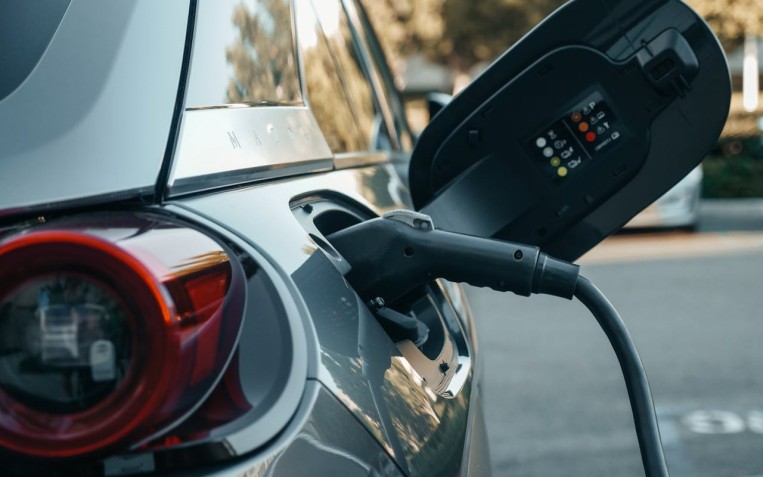Driving in Summer

Summer driving may be less challenging than driving in winter weather conditions, but with more traffic on the road and varying seasonal weather you should still ensure that you are prepared before undertaking summer journeys.

Time for a Clean
Spring can typically be wet and even icy, so it is important that you thoroughly clean your car and keep an eye out for any damage. You should especially pay attention to metallic components and check them for any signs of rust and corrosion. Metal that has corroded will be a rougher texture than it previously was and it may have faded in colour or even turned orange-brown. Corrosion can lead to a range of problems with vehicle components such as the brakes, engine and exhaust so if you notice this form of damage you should visit a specialist as soon as possible.
Change Your Tyres
If you haven’t already, you should switch from your winter tyres to either summer or all season tyres. Winter tyres are not designed to provide the same braking distances and gripping capabilities as summer or all season tyres when temperatures are higher than 7°C, so it is important that you have them changed over.
Even if you do not choose to change your tyres seasonally, you should still endeavour to check that your tyres will keep you safe on the road. You should undertake the following checks every 3 weeks:
Insert a 20 pence coin in to a groove on your tyre and ensure that you cannot see the outer band of the coin. If you can see this band, your tyre tread is lower than 3mm and will not provide adequate grip and your tyres may even be illegal. At this point you must replace your tyres.
Check your tyre pressure using a tyre gauge, which you can find at most service or petrol stations. Simply find the recommended tyre pressure for your vehicle, which you can find in the vehicle handbook or situated on the fuel cap, and check that your tyre pressures match those specified. If not, you must adjust accordingly.
Visually inspect the rubber on your tyres for any signs of damage or wear. These may include cuts, bulges, lumps or cracking. If you find damage in any form, no matter how small, contact a tyre specialist before driving. Damage can indicate that the internal structure of the tyre has changed and it may not be safe to drive on.
Check the Weather
While summer weather is not as hazardous as winter weather, it can be unpredictable! Unfortunately, summer in the UK can often bring floods, so be aware of weather forecasts and try to avoid areas that are prone to flooding during heavy spells of rain.
In addition, hot temperatures can be damaging to your vehicle if you are not prepared. Regularly check that your engine coolant sits above the minimum line, as this is what helps to keep your engine from overheating.
Beware Summer Hazards!
During summer you may notice an increase in traffic as more motorists take to the roads. Be sure to check traffic updates before travelling, to avoid being stuck in traffic or moving slowly on congested roads.
As the weather improves it is likely that more cyclists, pedestrians and horse riders will also be on the road! You should be aware of these other road users, particularly taking care to remain focused in more rural areas. If you do see a cyclist, pedestrian or horse rider try to be patient and only overtake when you are confident that it is safe.
Things to Carry
Be prepared for anything on the road this summer with these essentials:
- Bottled water – enough to drink and stay hydrated if you are stuck in traffic and also to use in case your engine overheats
- Sunglasses – so that your view of the road is not obstructed by the sun
- In-car phone charger – in case your battery runs out whilst driving
FREE Pre-Journey Check
Before heading off on a journey this summer you can ensure that your vehicle is in good condition with a FREE Pre-Journey Check.
Our FREE Pre-Journey Check includes an inspection of essential engine fluids, a top-up of your screen wash and checks to essential components including brakes, windscreen wipers and washers, battery and tyres.
To take advantage of our FREE Pre-Journey Check, simply add it to your online order at the basket.
Related Content

When should I replace my car’s suspension?
The suspension has many functions. Primarily, it connects the wheels to the body of the vehicle to give a smooth ride while keeping the vehicle stable. Knowing when you need to replace the suspension is essential to avoiding any potential accidents f...

Electric vehicle myths: solved
Making the transition to an electric vehicle can be overwhelming. There are many questions you may ask before you buy an EV. Are EVs expensive? Does i...

Updates to the Think! Campaign
In recent years, there have been major updates made to improve road safety on UK roads. The most significant changes made were to The Highway Code, gi...

